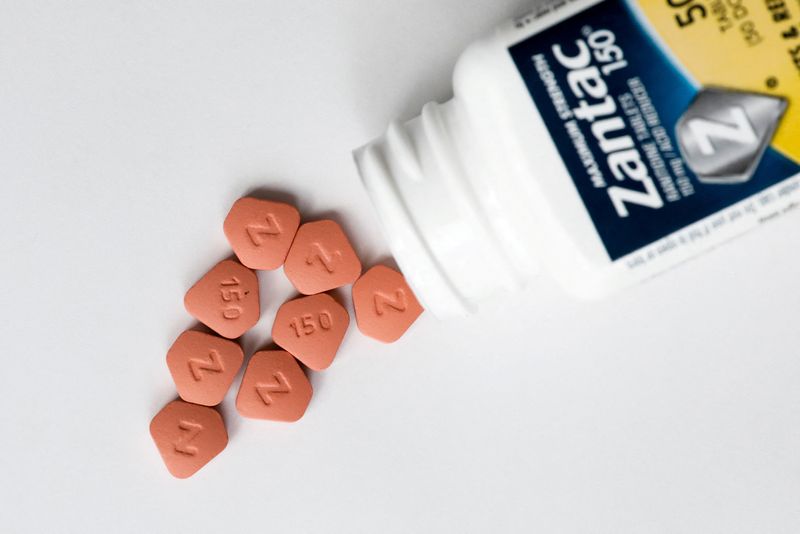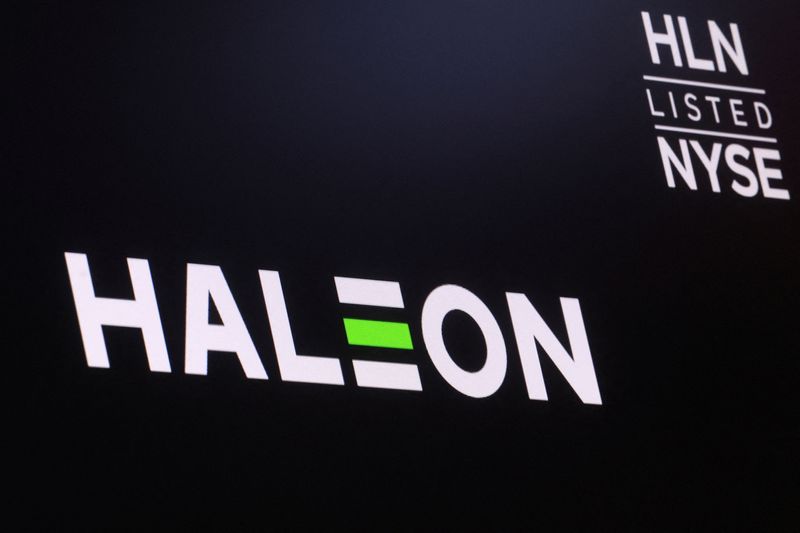By Natalie Grover and Danilo Masoni
LONDON (Reuters) -Shares in GSK, Sanofi (NASDAQ:SNY) and Haleon fell sharply on Thursday, following declines earlier this week, amid growing investor concerns about U.S. litigation focused on a heartburn drug that contained a probable carcinogen.
GSK shares fell more than 10%, Sanofi's stock sagged about 3.3% and Haleon's shares slipped nearly 5% at the close of trading on Thursday.
GSK, the U.S. Food & Drug Administration (FDA) and the European Medicines Agency (EMA) have all concluded after experiments that there is no evidence of a causal association between therapy with the heartburn drug ranitidine and the development of cancer in patients, GSK said in a statement in response to the litigation.
GSK added that plaintiff litigation is inconsistent with the scientific consensus.
GSK and Sanofi at various points sold the drug - originally branded as Zantac - which U.S. regulators ordered off the market in 2020. Haleon, spun out as an independent listed company last month, comprises consumer health assets once partly owned by GSK.
The prospect of impending litigation is not new. Among other disclosures, recently listed Haleon had highlighted the risk of such lawsuits in its prospectus.
The topic has arrived in investor consciousness in recent days it seems, but has been rumbling on in the background for a few years, Deutsche Bank (ETR:DBKGn) analysts wrote in a note.
The litigation has just started to be talked about more by investors and written about in the media, Barclays (LON:BARC) analyst Emily Field said in an email. "I think the panic ... really comes down to market psychology as opposed to having learned anything new."
Zantac became the world's best selling medicine in 1988 and one of the first-ever drugs to top $1 billion in annual sales.
However, concerns around the compound - known chemically as ranitidine - containing potential cancer-causing impurities started to emerge in 2018, well after generic versions of the medicine had been launched by a variety of manufacturers.
More than 2,000 legal cases related to Zantac have now been filed in the United States, analysts say, with the first trial beginning later this month.
"It is very possible we may see a liability of some $bn (billion) magnitude," the Deutsche Bank analysts wrote.
Uncertainty over the issue has sparked fears of a worse-case scenario where costs run into the billions of dollars, as happened in cases involving Merck & Co's painkiller Vioxx and Bayer (OTC:BAYRY)'s glyphosate-based weedkiller.
NOT PRIMARILY LIABLE
A decline of as much as 12% in Haleon shares on Thursday meant some $5 billion had been knocked off its value this week. It recovered some of those losses after a spokesperson told Reuters the company was not primarily liable for any claim.
"We have never marketed Zantac in any form in the U.S., as Haleon or as GSK consumer healthcare," the person said.
Zantac, originally marketed by a forerunner of GSK, has been sold by several companies since the late 1990s, including Pfizer (NYSE:PFE), Boehringer Ingelheim and Sanofi.
That "may make third parties liable ahead of any Haleon exposure," the Haleon spokesperson added.
A Pfizer spokesperson said in an email: "Pfizer, which has not sold a Zantac product in more than 15 years and did so only for a limited period of time, will continue to defend itself vigorously."
Pfizer shares closed 3.3% lower at $48.29 on the New York Stock Exchange on Thursday.
A Boehringer spokesperson said via email the company would defend itself against any allegations, while Sanofi issued a statement saying it remained confident in its legal defenses and that there had not been any material developments regarding the U.S. Zantac litigation.
GSK and Pfizer have each served Haleon with notice of potential claims of indemnification - but indemnification has not yet been determined between the parties, the Haleon spokesperson said.

After U.S. and European regulators said they were reviewing Zantac's safety in 2018, some manufacturers voluntarily took their version off the shelves the following year.
By 2020, the U.S. Food and Drug Administration requested makers of all versions of the treatment to withdraw their products from the market.
